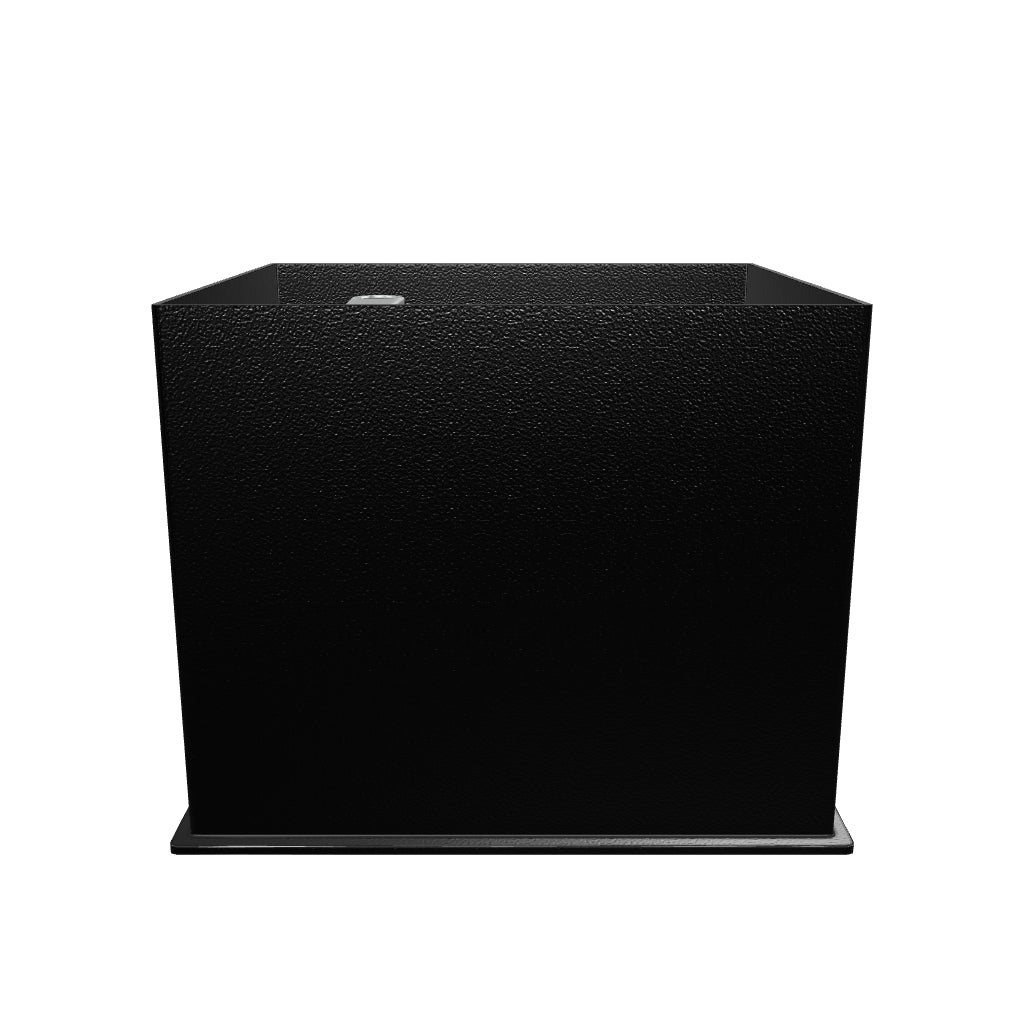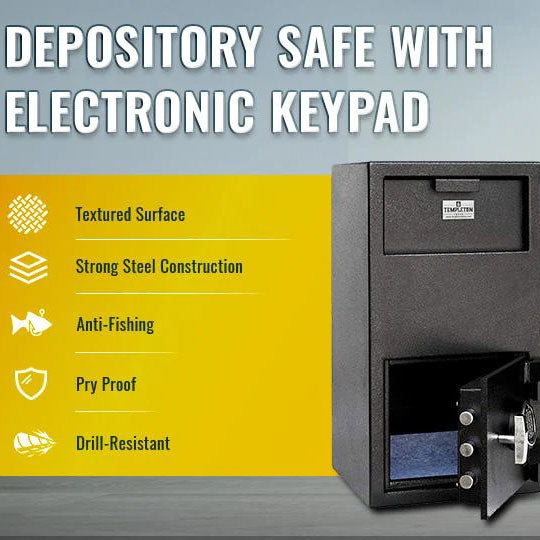Security Safes and Compliance: Meeting Industry Regulations in Healthcare
When it comes to healthcare, security isn't just about safeguarding patient data—it's about protecting physical assets like medications, sensitive documents, and equipment. Compliance with industry regulations is critical to avoid legal repercussions and maintain trust within the community. Healthcare security safes play a vital role in ensuring that these assets are stored securely, while also meeting stringent regulatory standards.
In this article, we'll explore why healthcare facilities need security safes, how they help meet industry regulations, and what to consider when choosing the right safe for your facility.
Why Healthcare Facilities Need Security Safes
Protecting Sensitive Materials
Hospitals, clinics, and medical centers deal with an array of sensitive materials daily. From controlled substances to patient records, these items require secure storage. Healthcare security safes are specifically designed to provide protection against theft, tampering, and unauthorized access. With rising concerns over security breaches in healthcare, investing in a reliable security safe is a necessity, not an option.
Meeting Compliance and Regulatory Standards
Compliance is a major concern for healthcare providers. Failing to comply with industry regulations can result in hefty fines, loss of certification, or even legal action. Specific guidelines from organizations like the Drug Enforcement Administration (DEA), Health Insurance Portability and Accountability Act (HIPAA), and Joint Commission Accreditation (JCAHO) outline the secure storage requirements for controlled substances, patient records, and medical equipment. A healthcare security safe that meets these standards can help your facility remain compliant while protecting your most valuable assets.
Reducing Liability Risks
Security breaches can lead to financial losses, compromised patient care, and a damaged reputation. Installing a secure safe can help mitigate these risks by ensuring only authorized personnel have access to controlled substances, cash, and confidential documents. This significantly reduces the chances of theft, accidents, or misuse, all of which could result in lawsuits or reputational damage.
Key Regulations Healthcare Facilities Must Follow
Understanding the regulations that apply to your healthcare facility is crucial when choosing a security safe. Below are some of the most important compliance standards to consider:
HIPAA Regulations for Record Keeping
HIPAA, the Health Insurance Portability and Accountability Act, sets the standard for protecting patient information. To comply with HIPAA regulations, healthcare providers must ensure the confidentiality, integrity, and availability of all patient records, both digital and physical. This means that any paper records containing sensitive patient information must be securely stored, such as in a healthcare security safe, to prevent unauthorized access or theft.
DEA Compliance for Controlled Substances
The Drug Enforcement Administration (DEA) has strict guidelines regarding the storage of controlled substances in healthcare settings. Safes that store these substances must be tamper-proof and meet the DEA's Schedule III-V drug storage regulations. Failure to comply with DEA standards could result in severe penalties, including the loss of a facility’s ability to dispense medications.
JCAHO Accreditation
The Joint Commission (formerly JCAHO) also requires healthcare facilities to follow stringent guidelines for the protection of medications and sensitive documents. A facility’s security system, including safes, will be reviewed during the accreditation process. Meeting these standards is critical for maintaining your facility’s accreditation and ensuring patient trust.
Choosing the Right Healthcare Security Safe
Not all safes are created equal, and choosing the wrong one can leave your facility vulnerable to compliance issues or security breaches. Here’s what to look for in a healthcare security safe:
UL-Rated Safes for Healthcare
One of the first things you should look for in a healthcare security safe is a UL (Underwriters Laboratories) rating. This rating is a reliable indicator of the safe’s security level. UL-rated safes are tested for their ability to resist forced entry, drilling, and even fire damage. For healthcare settings, a UL-rated safe ensures compliance with industry standards and offers peace of mind knowing your sensitive materials are stored securely.
Fireproof and Waterproof Options
Healthcare facilities often deal with irreplaceable documents, patient records, and medications that are vulnerable to environmental hazards. A fireproof and waterproof safe can protect these items from damage in the event of a fire or flood. Look for safes that offer multi-layered protection to ensure the safety of your assets in the worst-case scenarios.
Size and Capacity
The size of your healthcare security safe should align with the types of assets you need to protect. A small clinic may only require a compact safe for storing controlled substances, while a larger hospital may need multiple safes of various sizes to accommodate medications, documents, and even cash. Be sure to assess your storage needs and choose a safe that offers enough capacity without compromising on security features.
Electronic and Biometric Locking Systems
Access control is crucial in healthcare settings, especially for safes that store controlled substances or sensitive information. Modern safes come with advanced electronic and biometric locking systems, allowing only authorized personnel to access the contents. These locking mechanisms are far more secure than traditional key locks and can provide a log of who accessed the safe and when, adding an extra layer of accountability.
Benefits of Installing Healthcare Security Safes
Investing in a high-quality healthcare security safe is not only about compliance; it comes with a range of benefits that improve the overall security and operational efficiency of your facility.
Streamlined Access Control
With an electronic or biometric locking system, healthcare staff can access the safe quickly and securely without fumbling with keys. This is especially beneficial during emergencies, where quick access to medications or medical equipment can make all the difference in patient outcomes. Safes with time delay or audit trail features also provide additional security by monitoring and limiting access.
Peace of Mind for Staff and Patients
Healthcare professionals can focus on their primary responsibility—patient care—when they know that their facility's sensitive assets are well-protected. Similarly, patients and their families can rest assured that their personal information and prescribed medications are securely stored, fostering trust in your healthcare facility.
Compliance Made Easy
The primary advantage of installing a healthcare security safe is simplifying the process of compliance. The right safe will meet DEA, HIPAA, and JCAHO standards, reducing the likelihood of a compliance violation. Moreover, many modern safes come with features that facilitate regulatory reporting, such as audit trails and automated access logs.
Discover Top-Notch Healthcare Security with Templeton Safes
When it comes to meeting healthcare security and compliance needs, Templeton Safes has you covered. Our wide range of UL-rated, fireproof, and tamper-resistant safes ensures that your facility remains compliant with DEA, HIPAA, and JCAHO standards, while providing superior protection for medications, sensitive documents, and other critical assets. Explore our collection of healthcare security safes today by visiting Templeton Safes All Safes Collection. Your facility's security is our priority—invest in a Templeton Safe and safeguard what matters most.
Compliance and Security Go Hand in Hand
Security safes are not just a smart investment for healthcare facilities—they are essential. By ensuring your safes meet HIPAA, DEA, and JCAHO standards, you protect not only your assets but also your reputation and your ability to serve patients effectively. To learn more about how security safes can help meet HIPAA compliance, check out this article on HIPAA Security Rule Requirements.
Investing in a quality healthcare security safe is about more than meeting regulations; it's about fostering a safe, compliant, and trustworthy environment. Whether you need a small safe for controlled substances or a larger, fireproof safe for storing patient records, selecting the right one can streamline your facility's operations and give you peace of mind.
So, if you’re wondering how to keep your healthcare facility compliant while protecting valuable assets, look no further than a UL-rated, fireproof, and tamper-proof healthcare security safe. It’s a small investment that yields substantial returns in safety, compliance, and trust.






























